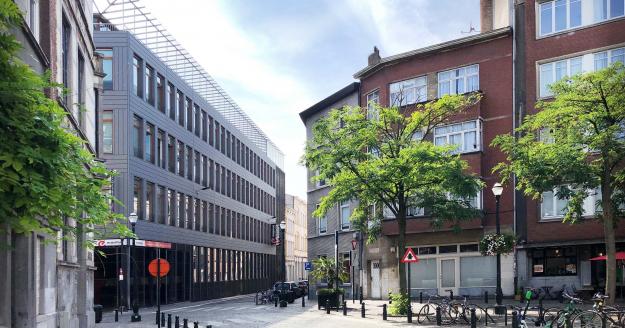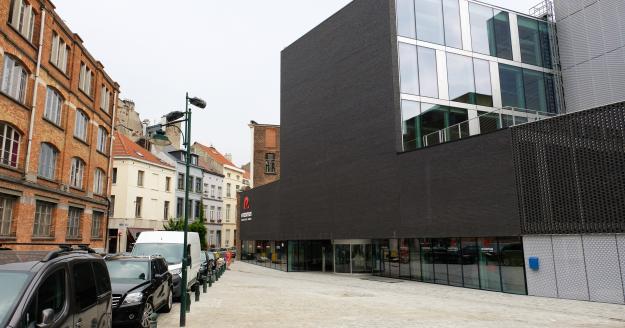
Idea and Innovation Management
Research: Strategic Futures Orientation
All humans have a capacity for foresight. We think ahead and anticipate, shaping our futures as well as our present in doing so. This course will introduce futures oriented thinking and research. It develops foresight competencies and sets occasions to practice skills for long term and strategic orientation under conditions of uncertainty and complexity.
We will take account of the historical and theoretical starting points of futures oriented disciplines to provide insight in the basic assumptions underlying systematic and rigorous futures work. We will look at cases of how individuals, groups, organisations, companies, and policy makers conduct forward-looking activities. We will see a selection of methods, tools and techniques that futurists use to assist individuals and groups of all kinds to anticipate the future.
This course will look at possible, probable, plausible and preferable futures and cover the six pillars of futures studies (mapping, anticipating, timing, deepening, creating and transforming the future). We will learn to use an understanding of demographic, social, technological, environmental, economic, political and other (global) forces of change in relevant strategic foresight.
This is a multi-disciplinary course that covers both theoretical foundations and practical applications. It introduces quantitative and qualitative research methods, including different forms of environmental scanning, alternative futures analysis, causal layered analysis, scenario building, visioning, experiential futures, design fiction and retro casting. Students will gain insight in how images of the future are shaped and used, develop hands-on experience with their own foresight projects and hone their observational, analytical, critical and creative skills.
Additional costs: 145 € (Visit & transport to Dutch Design Week in Eindhoven, The Netherlands)
Evaluation: 40% Workpiece + 60% Oral Examination (indicative, to be confirmed)
Language of instruction: English
5
Networking
Networking is a crucial skill and becomes ever more important. It all boils down to finding the right people quickly and efficiently and to finding a good approach to start the communication. The purpose of networking is to create opportunities to reach a personal or joint objective.
Students learn how to build an extensive network, how to make optimal use of networking opportunities, which networking activities are useful and which are not, how online tools (e.g. LinkedIn) can be optimised for networking. Successful networking is also synonym for an excellent follow-up strategy. How does one tackle that? Each student will have to apply and show his/her successful networking in the context of a specific case.
Evaluation: Continuous throughout the term (Indicative, to be confirmed)
3
Business Creativity
In this course we go in search of the creative organisation. The name ‘business’ in the title of this course is to be read as a ‘busy-ness’ (i.e., we look at more than for-profit companies, including non-profits, clubs of all kinds, etc), which can benefit from creativity.
We start by exploring since when and how business creativity started to get studied as ‘a serious research discipline’ (spoiler alert: we owe the advertising world), and discuss some of the pioneers that developed tools that we use in daily life, like brainstorming. Early on in the course we also introduce a number of models and frameworks (e.g., the 4P model) that come in handy when you want to explain to your neighbour, your future manager or other half, what exactly this thing called creativity is, and how it benefits aforementioned busynesses.
What follows are a number of topics that will either appear recognizable from earlier courses – but looked at through a different lens (types of challenges, creative climate, disruptive innovation, evaluation methods, measuring the creativity of an individual and of a busy-ness, …), or brand-new (polarity management, creativity leadership). Another item getting its fair amount of attention is the interplay between knowledge, imagination, evaluation and attitude, and how these 4 interact to yield creativity.
A typical session is half lecture, half practice (often team work).
Additional costs: 5 € (material for workshop)
Evaluation: 70% Oral Examination, 30% Creative Product (one that helps you land your future job)
5
Sustainability and Circular Economy
Sustainability has been an important driver for some innovations in the last few decades. The future will bring more of these innovation paths driven by sustainability goals, and the circular economy is just getting up to speed at this moment: it will further determine more sustainable business operations in the future.
This course gives advanced insights in the evolution of sustainability paradigms and introduces practical ideas that have been developed in creating a more circular economic system. Students will get course modules on the following topics:
- General introduction and historical overview of the themes ‘Sustainability’ and ‘Circular Economy’.
- Sustainability policy and the translation to climate change and circular economy policies.
- A circular business approach illustrated through a number of innovations.
- Practical approach and tools for sustainable business and circular economy activities:
- Business model innovation – tools for closing and narrowing loops.
- Product innovation level – Eco-design and Circular product design – strategies and methods.
- Supply chain innovation and networks – closing loops.
- Consumer behaviour adaptation – narrowing loops.
- Sectoral cases (e.g. food sector, textile sector, building sector, chemical sector, etc.).
- Discussion on the positive (societal) impact of the circular economy.
The classes will, whenever possible, include guest speakers from a range of companies that are working on circular economy initiatives. These stakeholders provide invaluable insight and hands-on experience. Classes will encompass several lectures (including guest speakers) and a few seminars to work on practical methods.
Additional costs: €15 (Visit BIGH Anderlecht)
Evaluation: 100% written digital examination
5
Design Thinking, Concepting & Prototyping
This study unit combines classes, workshops, and working on a real case. A practical case will guide the entire class, in recent years Godiva Chocolates, Delhaize retail stores, and
Peritus Brands, have been utilized. The course is organised as follows:
- 7 theoretical lessons,
- 1 practical case,
- 2 fun Design Thinking related field events:
- 2 days at the Dutch Design Week in Eindhoven, the Netherlands;
- 2 day of FabLab training, to make your own prototypes.
You are taught the design thinking process, and how you arrive at the creation of prototypes
from understanding and observing a problem. In essence, the following flow will guide you
through the course:
- The Design Thinking Process: What is Design Thinking & how does the process run?
- Empathise: Understand & Observe design research through different methods and techniques of user and customer research.
- Prototyping: An introduction into definition and application.
- Testing & Evaluating: Monitoring progress & Ideation.
- Translation of collected data into a business model.
Additional costs: 55 € (Visit Fablab Brussels + Design Game & Workshop + Kortrijk D2M Fair)
Evaluation: 30% Workpiece + 70% Oral Examination (Indicative, to be confirmed)
5
Innovation Case
The innovation case project forms part of the Bachelor in Idea & Innovation Management and proceeds via a series of coaching sessions. It is a sub-topic of the broader subject and frames within the educational discourse, enhancing the programme’s vision of learning by doing. This class is the literal execution of a concrete innovation-related-project for a real client.
This project demonstrates that you have acquired the necessary skill-set to tackle a real innovation problem (possibly within a team-context) and that you can support this with an independent piece of work.
Evaluation: 100% Final Report & Presentation (Indicative, to be confirmed)
4
Intercultural Skills
We define Intercultural Skills as the awareness of and the understanding of the intercultural and international reality of our (professional) life in today’s globalised and multicultural society. Innovation usually thrives in an international context. This is why it is crucial to acquire skills in international business and in international relations.
Students gain insights into various aspects of multiculturalism: time and space, verbal and non-verbal communication, etiquette, hierarchy, individualism, work and leisure, ethics, ... We learn how one can deal with this diversity and who needs to adjust to whom.
By means of a case study students will be working on various aspects of inter-culturalism. An important role of the young innovation professional is the one of ‘bridge-builder’: being someone who brings people from inside and outside the organisation together to start and accompany a process of co-creation or open innovation.
Evaluation: 100% Written Examination (Indicative, to be confirmed)
3
Survival Dutch
The aim of the "Survival Dutch" course is to master the basics of the Dutch language, both written and spoken. Starting from everyday situations, you will learn the necessary grammar and vocabulary in order to function in a Dutch speaking environment.
We strongly recommend incoming students to participate in the Survival Dutch course, organized prior to the start of the semester.
Language of instruction: English and Dutch.
3
(A Guide to) Navigating the World of AI
Artificial Intelligence or AI is a buzzword today and remains a concept poorly understood, vague, and often approached with fear of the unknown or with false hopes about what can be achieved. The course "Navigating the world of Artificial Intelligence" aims to introduce non-IT students to some of the basic concepts, principles, and techniques that fall under the umbrella term AI and offers a more nuanced understanding on the topic. This course is specifically designed for students with no technical background. This is not a coding course! Instead this is an introductory course that enables students to think critically, creatively and ethically about the implementation of AI technology.
Through exercises, you will be encouraged to investigate the general impact of AI in your own field to then further conceptualize what that could mean for a specific organization within your field. The students are guided through these exercises via online course material and regular discussions with peers.
4
Contact
Address
Erasmushogeschool Brussel
Campus Bloemenhof
Zespenningenstraat 70, 1000 Brussels
Campus Kanal
Slotstraat 28, 1000 Brussel
Contact for Erasmus students
Erasmus Coordinator Idea and Innovation Management: kim.de.vidts@ehb.be
International Office: international.office@ehb.be
International Office - Coordinator for incoming students: karen.laleeuwe@ehb.be






